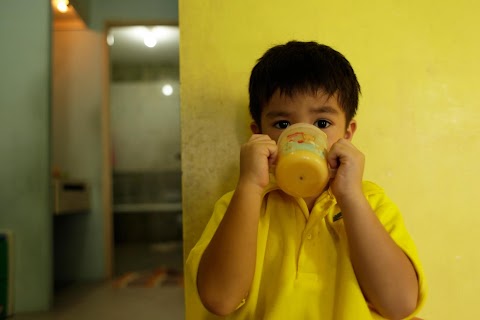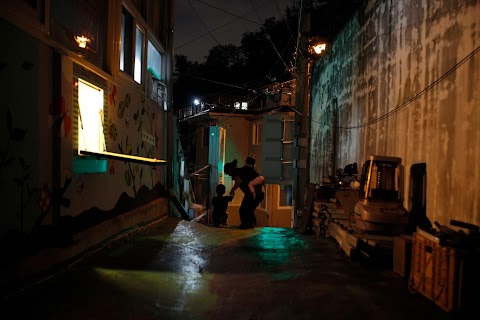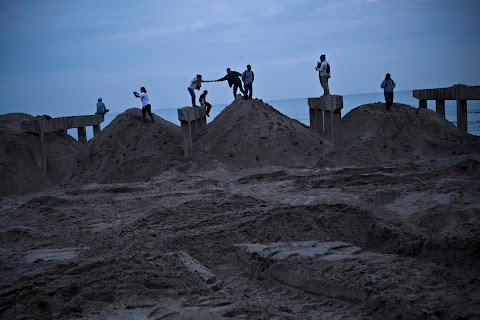
Working parents, keen kids
More and more women have been going out to work in Indonesia and one of the consequences has been a rocketing demand for daycare. In fact, although the number of daycare centres has doubled to 1,000 this year, even this falls far short of the overall need.
This little boy is one of those with a spot in a nursery; he goes to Keen Kids, a private daycare centre based in Jakarta.

Story
More Indonesian mums now turning to daycare
When Aryan Danudara was 6 months old and ended up in hospital because of poor care by the family maid, his parents decided to put him in a daycare centre after he recovered.
"Both my wife's job and mine are very busy. So when he turned eight months old, we decided on sending him to daycare," said Adhi Ferdhya, a 40-year-old media consultant who said that between client visits and business trips, they were often away.
With more and more women going out to work due to rising education and middle-class aspirations, daycare has become essential for residents of urban Jakarta and other parts ofIndonesia, the way it has in the rest of the developed world.
But while earlier generations of the Indonesian middle class had the luxury of maids taking care of their children, rising education levels means women who once might have become maids or nannies prefer better jobs such as shopkeepers or factory workers, pushing wages higher.
Aryan, now 6, is still going to daycare on weekdays from 7:00 a.m. to 6:30 p.m. The 2 million rupiah monthly fee ($210) covers daily care and three meals a day.
Others find that rising living costs and changing lifestyles make childcare a necessity, despite the still widespread belief that children should be taken care of at home, whether by a nanny, maid, grandparents or other relatives.
According to the Ministry of Education, the number of daycare centres has doubled to 1,000 this year. But with demand rising sharply, this falls far short of the overall need.
Mustika Perwitasari, a 29-year-old mother of two including a newborn, lives with her mother-in-law for convenience but is considering daycare.
"With two children, I have to go back to work otherwise we can't afford to buy their milk. My mum isn't young anymore, so two toddlers would be a handful," she said.
"There's a subsidised daycare at my husband's office, so we would try it for our older child."
Keen Kids is a Jakarta-based private daycare centre, which currently running two facilities along with pre-school and elementary school. The private daycare centre has almost 200 children attending.
"These days both parents have to work for a living. Childcare is needed for children when both parents work. We are here to facilitate that need," Melani Quintania, the headmistress of Keen Kids, told Reuters.
In some cases, parents opt for daycare because they want their children to be in the hands of carers who are more qualified than a maid. Keen Kids keeps such a close eye on its charges that they are sometimes able to alert parents to learning disabilities or similar problems that might otherwise go undetected.
In addition, daycare centres may be able to give children more stimulation than they would get at home, leading to additional benefits, said Vera Hadiwidjojo, a child psychologist at Klinik Terpadu Psikologi University of Indonesia.
"With a good daycare environment, the child will be more independent and can socialise easily," she added.
But resistance remains strong for a variety of reasons, including the inconvenience of having a set pickup time for the children. Some parents also worry that the centres will be hotbeds of contagion, making their children ill.
"I'm not comfortable with putting my kids in daycare," said Siti Budi Wardhani, who works at the British Embassy and said she worries about the health of her two sons, age 7 and 9.
"Plus, they can be neglected because one person is handling several kids at one time."






















